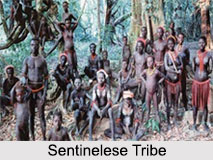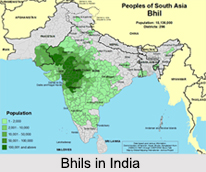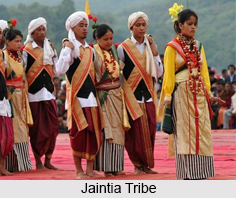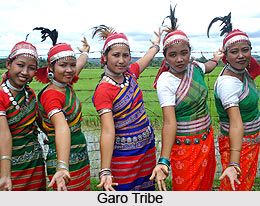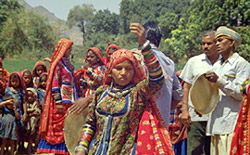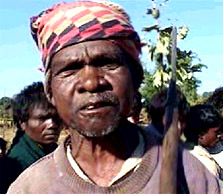 Pahari Korwa tribe occupies a major part of Bihar. The people of Pahari Korwa tribes practice cultivation, thereby, producing various crops. According to researches, these tribes belong to the Austro-Asiatic family group. If one divides the whole of the Pahari Korwa tribal community, one can find that there are two sub tribes, popularly known as Pahari Korwa and Dihari Korwa. The anthropologists have given a vivid description of their physical stature and form. According to them, these Paharia Korwa tribes have got medium to short height and have a dark brown or black skin.
Pahari Korwa tribe occupies a major part of Bihar. The people of Pahari Korwa tribes practice cultivation, thereby, producing various crops. According to researches, these tribes belong to the Austro-Asiatic family group. If one divides the whole of the Pahari Korwa tribal community, one can find that there are two sub tribes, popularly known as Pahari Korwa and Dihari Korwa. The anthropologists have given a vivid description of their physical stature and form. According to them, these Paharia Korwa tribes have got medium to short height and have a dark brown or black skin.
The society of the Paharia Korwa tribes is further segregated into 5 `totamistic clans`, namely, Hansadwar, Samar, Edigwar, Ginnur and Renla. It has a rich heritage of culture and tradition, as depicted in their fairs, festivals, music and dancing forms. The villages that these Paharia Korwa tribes built are usually selected on the top of the hill. Sometimes they are being constructed in the fringes of the forest areas. Most of the families of Paharia Korwa follow the nuclear family structure. Just like any other tribal communities of Indian subcontinent, the religious practices of these Paharia Korwa is restricted to ancestral worship and to the worship of a handful of gods and deities.
Another remarkable characteristic of these Paharia Korwa tribes is that magic and invocation of the spirits are being practiced in the whole of the society. In fact most of the Paharia Korwa tribes are really scared of executing any type of magical fetes or shows. However, these tribes have had tremendous faith on various deities. The significant gods of Paharia Korwa tribes are Sigri Dev, Gauria Dev, Mahadev or Lord Shiva and Parvati. Khudia Rani is the supreme god of this Paharia Korwa tribal community. The reasons behind revering these deities are many. They want to get recovered from sickness, have better crops, and also to get protection from several natural disasters.
Due to their huge accessibility to the forest provinces, it is only natural that these Paharia Korwa are going to take up the occupation of hunting and gathering. Maximum of these Paharia Korwa tribes collect several items from the forests including Sal, mahua, gum, tendu leaves, amla, harra, bahera etc. During the monsoon times, these Paharia tribes involve themselves in collecting some of the forest roots, leaves and vegetables. The Pahari Korwas are concentrated in many villages of Bihar and are living together in peace.
However, in order to keep themselves at par with the modern trends and practices, in the contemporary times, they adapt to the farming and irrigation and too with the aid of the ancient tools and techniques only. Fishing too is exercised as occupation by some of the Paharia Korwa tribal communities. At times when they are free from the burden of undertaking agricultural works, these Paharia Korwa tribes work in the fields as laborers.
They have developed the habit of taking several food grains. Also at the time of the odd season, they fulfill their hunger on leaves, fruits, tubers namely Gainth, Pitharu, Nakwa, katharu, kulthi, konge, charhat, bilar etc. During the months of October and March, they get the supply of better food which includes makai maize, kutki, arhar (pigeon pea), and other pulses etc.
Moreover, the culture and the tradition of the Paharia Korwa tribes celebrate different religious and cultural festivals and occasions with their tribal music. The usage of Dhank, Dafli, Mandar, Mridang, Nagada, Drum and Timki are seen in their tribal songs.

















